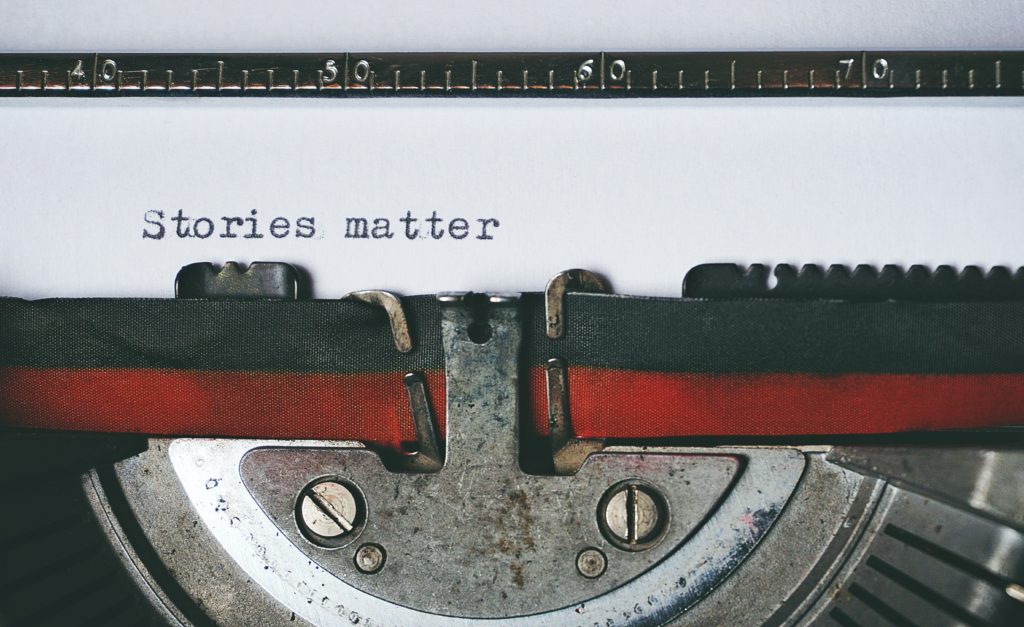
About 6 months ago someone retweeted something into my timeline that’s made me think more about the power of storytelling and how it drives fundraising than anything else during the pandemic. The originator of the tweet was someone with whom I would never normally have come into contact – a young Glaswegian woman navigating her first term at drama school. It said quite simply:
‘First day at drama school and someone called council houses disgusting! ‘Ere we goooOOOO’.
Not the most eloquent potential use of 280 characters you’ve ever seen, but it was retweeted over a thousand times and liked by a staggering 24.4K people. My mind had already built the story around the edges of this one sentence as human brains always do. This was a striver who was following a dream. She hadn’t the benefit of privilege and had defied her life chances to arrive at this longed-for destination, only to be met with derision. Personally I felt incensed for her and it sounded like I wasn’t alone.
I added a comment onto her timeline in an attempt at solidarity and hopefully to raise a smile. I said the kind of person who thought such a thing probably wouldn’t fare too well in an emotional recall class at drama school. After all, how can you convey the full orchestra of human experience when the worst thing that had ever happened to you was your pony had lost the gymkhana? (You see how my brain had even created a persona for the originator of the remark?) It turned out it was quite a popular comment. People related because, after all, how many of us have felt the unjust weight of similar experiences? How many of us have been made to feel we don’t belong by someone who is looking down on us?
The following day this young drama student did something very smart. Having realised she now had the attention of a sizeable audience who related to her hurt and indignation, she set up a GoFundMe page to raise £10K to help fund her year at LAMDA (London Academy of Music and Dramatic Art). Her opening line was perfectly pitched: ‘Hello! Welcome! Thanks for clicking on my GoFundMe. This is the first step to readdressing the horrendous class gap in the arts. Kidding. Maybe?’
She went on to tell her backstory in an authentic voice that was funny, quirky and entirely without self-pity. She was a young queer woman who’d done well at school and had been passionate about making theatre since childhood. She’d often worked three jobs to support her love of performing and had lost her most recent one in hospitality due to the pandemic. After 6 months on benefits she’d found work in another city and had been sleeping on a friend’s sofa, with the hope of going to LAMDA where she’d won a place to study drama. The problem was it was £25K per year to live and study in London and she had no funding.
The story came with an even bigger final kicker. As a result of all the stress she’d experienced, her hair was falling out. She’d developed alopecia (not really the look you want as a fledgling actress), although as her photo showed she still looked great bald – a winning combination of vulnerable and defiant.
I’d never met this woman before, but I took my credit card out and donated twenty quid immediately and then sat back and watched the total on her GoFundMe page increase at cartoon-like speed as other people felt what I felt. It wasn’t pity that was motivating these gifts. It was a shared, burning sense of injustice and a desire to redress the balance, even if it meant doing it in small, incremental steps. Needless to say she exceeded her target in a matter of days.
We often talk of finding an emotional centre to a fundraising story and it’s important to say that it doesn’t always have to be tear jerker. It’s my view that what is fuelling the Marcus Rashford phenomenon and driving so many to action isn’t the fact that having hungry children in the UK is heartbreakingly sad – which it clearly is – but that such a thing could still happen here, to us, in the 6th richest nation on earth. It speaks of how we really feel about the yawning gap between the haves and the have nots. It taps into experiences we have had where we have strived and still been found wanting through no fault of our own.
Post pandemic, everything points towards us becoming a country of further extremes. For young people without adequate resources or opportunity the future may look bleak, but there is still an abundance of ingenuity and resilience to light the way, as this drama student has clearly shown. There remains too a huge amount of public good will and a growing desire for positive change.
Our job as fundraisers is to continue to be the match-maker, not just connecting the donor to the story, but also to the emotion that drives it. Identifying the feeling that is most likely to chime – be it to the broadest section of people or to a particular individual – is only the first step. I believe trusting it and allowing it to do the heavy lifting is going to be the key to success.